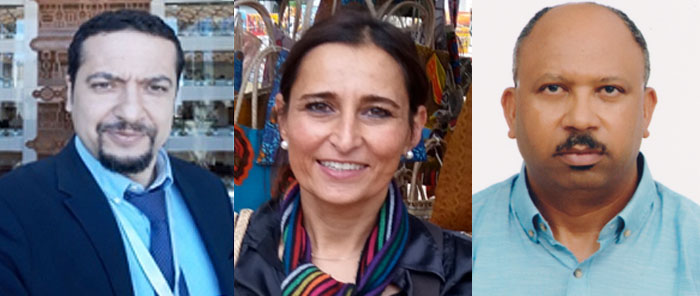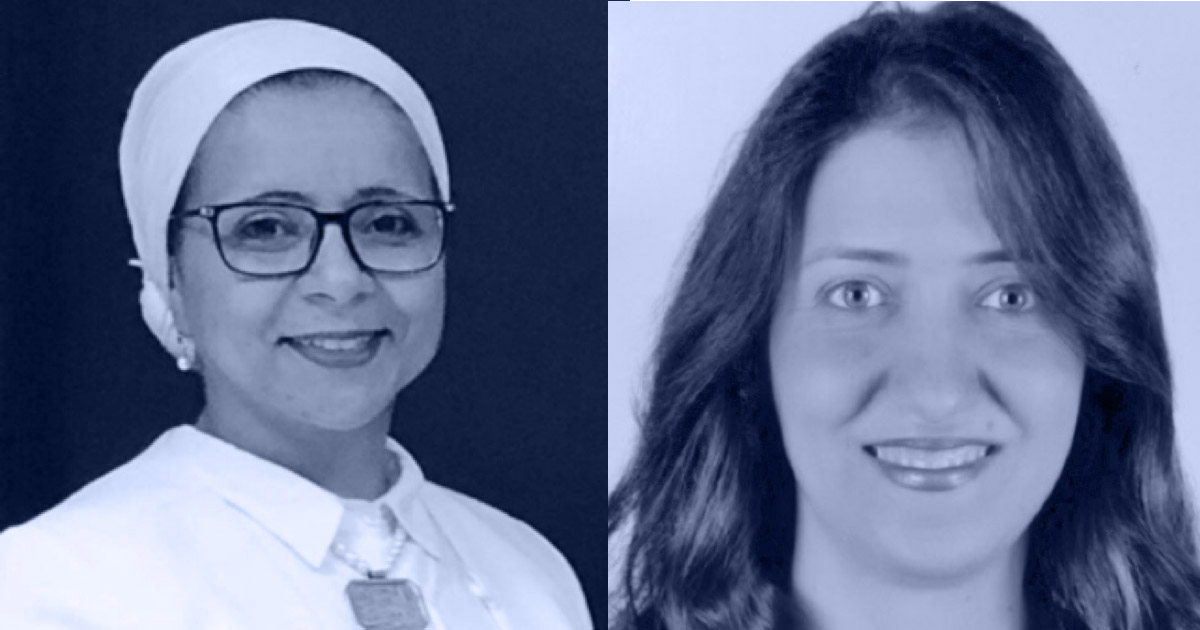Despite a significant growth in profitability and efficiency, the Middle East (MED) well developed banking system seems to be unable to reach vast segments of the population, especially the underprivileged ones. To this end, the onus of policymakers in the region is to create effective opportunities for financial inclusion, and subsequently poverty and income inequality reduction. Whether they have succeeded in their endeavor is an empirical question we seek to address in this research project. Using Panel data, GMM and GLS econometric models, and a sample of six MED countries (Al GMM and GLS econometric models and a sample of six MED countries (Algeria, Egypt, Jordan, Lebanon, Morocco and Tunisia) over the period 2002-2018, this paper assesses empirically the impact of financial inclusion on income inequality, poverty, and financial stability in the MED region. While the empirical literature on the region is relatively scarce, this paper adds to that literature by bridging a significant existing gap, especially in the aftermath of the recent financial and debt crises and the recent political, social, and military turmoil that have been unfolding in several MED countries.
Our empirical results have shown that financial inclusion decreases inequality but has no significant effect on poverty. Inflation and population increase both inequality and poverty. Other empirical results have shown that the secondary enrollment ratio, female labor force participation and the trade openness variables are found to significantly affect poverty. While the empirical evidence indicates that enhanced financial integration is a contributing factor to financial instability, an increase in financial inclusion and in population contributes positively to financial stability. This study has also shown that greater access to financial services is positively contributing to the resilience of the banking system deposit funding base. This is particularly important during times of financial crises. Enhanced resilience of bank funding supports overall financial stability of the banking sector and the entire financial system. The latest debt and financial crises have shown that financial liberalization and inclusion in MED may not always be conducive to poverty reduction and financial stability improvements.
Our empirical findings have important policy implications. MED policy makers face tradeoffs when deciding whether to focus on reforms to promote financial development (financial inclusion, innovation, financial access, etc…) or whether to focus on further improvements in financial stability. However, synergies between promoting financial development and inclusion and financial stability can also exist. The results of this study could help foster a better policy to reform the financial sector by demonstrating how broadening the use of banking can have a direct impact on income distribution.
The recent and uncoordinated liberalization attempts have rendered MED financial and banking sectors more vulnerable to the recent financial and debt crises. In particular, the fast attempts to liberalize and financially integrate the Egypt, Jordan, and Morocco’s financial markets with the more mature markets of the United States and Europe has had devastating consequences on their banking sectors and stock markets.
When deciding on whether to focus on reforms to promote financial development (financial inclusion, innovation, access to financial services, etc.) and reduce poverty and income inequality, or on whether to focus on further improvements in financial stability, MED policy makers will have to bear in mind, the tradeoff that exits between financial liberalization and integration and financial stability. Carefully designed financial liberalization policies need to be timely introduced in order not to destabilize the financial system. Moreover, the latest debt and financial crises have shown that financial liberalization and development may not always be conducive to poverty and inequality reduction on the one hand, and to stimulate growth and development, on the other. On the contrary, and in many instances policies aimed at fostering financial development and innovations have triggered recessions and in many MED countries have had detrimental effects on growth and development and have further widened the gap between the rich and poor.
The MED region stands at a crossroad, with changes sweeping many of its countries and creating an environment conducive to financial and economic reform. Having missed a number of opportunities to reduce poverty and inequality, to introduce extensive financial and institutional reforms, and make substantial progress in financial inclusion, more effort still needs to be devoted in the future. The social movements in the region and the earlier series of financial crises have exposed the weaknesses of the adopted financial development model and have raised questions as to how to reshape financial policies most effectively and create the space to address the needs of everyone in society, reaching even the most deprived. The slow pace of financial development and liberalization policies adopted in most MED countries in the past has yielded a relatively acceptable level of economic growth and, in general, managed to meet the goals of economic and financial stability. Oil booms have generated acceptable growth rates, with oil-abundant MED countries delivering much more than those less developed. However, the impact of such economic and financial policy choices has not led to the desired outcomes in terms of human development, poverty reduction and financial stability. Growth has not been inclusive and has widened the gap between the rich and poor; a case in point is Egypt and Morocco. Indeed, in certain cases, financial liberalization has actually contributed to further financial instability. In light of a critical reassessment of the achievements and failures of MED countries, a new financial development approach should be adopted. This new model should be more holistic, integrating the financial and social spheres in combination with strong financial institutions. It is vital that MED policymaking should expand to accommodate these spheres and place them on equal footing in the service of a long-term rights-based financial developmental vision.
The new model will reconsider financial policies that incorporate developmental priorities and would thus achieve structural change. Financial policies will have to be reshaped to achieve not only financial stabilization, adjustment and economic growth, but to also trigger the transformation required to generate growth that is broad-based, inclusive and sustainable. Within this context, such policy tools as financial development and inclusion, and financial sector diversification and liberalization will have to be addressed. At the same time, financial policies should not shy away from meeting the same objectives as social policy under this new financial development paradigm, in which the interests and welfare of every person in society are the target. It is also of central importance to ensure that social policy goes hand-in-hand with financial development policies to bring about the required transformation and ensure inclusive financial and economic growth. While the social and financial spheres should interconnect to create synergies, this new financial development model will not achieve its goals if political and institutional reforms remain shallow. Finally, sustainable poverty and income inequality reduction requires an acknowledgement that politics, institutions, financial and socio-economic policies are intertwined and have an impact on each other. Synchronizing financial and social policies with institutional and political reform would bring about positive, sustainable change under a clearly defined financial development vision.



 The policy brief has been produced with the financial assistance of the European Union within the context of the FEMISE program. The contents of this document are the sole responsibility of the authors and can under no circumstances be regarded as reflecting the position of the European Union
The policy brief has been produced with the financial assistance of the European Union within the context of the FEMISE program. The contents of this document are the sole responsibility of the authors and can under no circumstances be regarded as reflecting the position of the European Union



